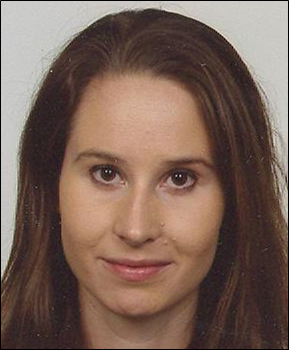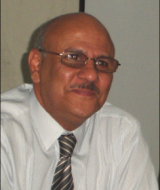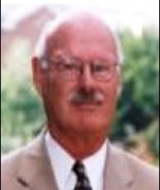- 14 Jun 2012
THE EVOLVING SITUATION IN YEMEN: BREAKING NEWS EVENT
Event Summary
By Koh Choon Hwee
14 June 2011
In response to the dramatic developments in Yemen in recent months, MEI organised a breaking news event with Dr. April Longley Alley, Mr Saadaldeen Talib and Dr. Michael C Hudson. The first speaker, Dr. April Longley Alley, is a Senior Analyst with the International Crisis Group (ICG), based in Abu Dhabi. She spoke to an audience in Singapore using videoconferencing technology, with her image beamed onto a large, white screen. Dr. Michael C Hudson introduced her as his former student who is widely published and as a scholar who strongly believes in field research. Indeed, Dr. Alley later prefaced her presentation by noting that Yemen is one of those countries which is very difficult to study from media reports- one needs to be on the ground in order to properly understand developments there. Dr. Alley was most recently in Yemen in late April 2011, and expressed her hopes to return to Yemen the following week (20-27th June 2011). The protest movement in Yemen was inspired by the Jasmine Revolution in Tunisia. Small protests in Sanaa began on the 15th of January and mainly comprised of youth and civil society activists. By February, with the momentum from the Egyptian uprisings influencing the Arab world, the tenor of the Yemeni protests began to change, gain strength, and became more spontaneous. Opposition parties also began to join in the protests. A pivotal shift took place on March 18th with the killing of over 50 protesters in Sanaa. Snipers shot protesters in the head and/or chest. This precipitated a violent escalation in the protest movement, as well as a split in the military marked by defections over to the side of the protesters. The ICG’s position on Yemen since mid-March has maintained that Saleh has lost the moral authority to govern, and a transition to a broadly inclusive government was needed. The Gulf Cooperation Council (GCC) became involved in the Yemeni situation in April, proposing the “30-60” plan where Saleh resigns after 30 days and elections are held 60 days after his departure. There was a political deadlock over this plan; the parties involved have supported it theoretically but there have been practical difficulties implementing the plan. Saleh, for example, has refused to sign the deal on three separate occasions. Dr. Alley argued that in analysing the developments in Yemen, it is important to avoid simplistic narratives. The narrative that the regime likes to employ is that of a protest movement hijacked by elites, specifically the Ahmar faction, which would downplay the need for substantial reform. A second narrative, that tends to surface when one is observing Yemeni events from the outside (via news channels like Al Jazeera for example), portrays the opposition to Saleh as a unified entity. It is important to note that the opposition in Yemen is internally plagued with significant ideological differences. Further, there are regional differences, notably between the north and south of the country. Dr. Alley highlighted that the immediate priority for Yemen is to reinforce the ceasefire that has been put in place by the Saudis. She noted that Saleh had increased the number of checkpoints in Sanaa, at the same time the Ahmar group had increased its tribe’s presence in the capital as well. The situation in Yemen is very tense and needs the ceasefire to hold, possibly with the assistance of tribal mediation. Dr. Alley suggested that there ought to be an agreement to remove the sons of both sides, as they are spoilers to moving ahead. Their collective influence ought to be removed from the formation of a new transitional government. She also cited the tragic mosque bombing on 3 June, which led to Saleh’s flight to Saudi Arabia for medical treatment, as an opportunity for the country to move forward with transition. Lastly, Dr. Alley called the economic crisis in Sanaa and the countryside desperate – substantial help from the international community would be needed. The second speaker, Mr Saadaldeen Talib, was a former Member of Parliament in Yemen and was elected to serve as Commissioner of the Supreme National Authority for Combating Corruption from 2007-2009. He praised Dr. Alley’s presentation and revealed that he had made the acquaintance of Dr. Alley while she was still a PhD student doing fieldwork in Yemen. Mr. Talib first contextualised Saleh’s presidency in Yemen, which began in 1978, by noting that during the same period, the US government was headed by six presidents with nine terms between them over 33 years. He noted that Saleh was very politically astute in managing to retain his grip on power after the unification of the North and South in 1990, first teaming up and then breaking with the Al-Islah party whenever it was prudent. Mr. Talib noted that Saleh had 42 close relatives holding important posts in the Yemeni political elite. The most prominent examples are – Saleh’s son, who heads the Republican Guard, and Saleh’s nephew, who heads the Central Security Forces. Yemen’s ambassador to the US is also his brother-in-law, and he had just graduated from college and was about 27-28 years old. Mr. Talib describes this as an extreme form of state capture in Yemen by Saleh’s family. Throughout the last few years, Saleh had used the threat of terrorism to obtain military support to fight Al Qaeda, leading to continual financial support from the GCC and US and moral support for Saleh as the guarantor of stability. Mr. Talib argued that it was important to revise the roles that the US and GCC play in Yemen – the US and the West have effectively given the Yemeni file to Saudi Arabia and the GCC to solve the problem, and the Saudis would have no interest in seeing a successful revolution and a democratic Yemen their backyard. According to Mr. Talib, greed—greed for power, which brings wealth – was the reason regimes like Saleh’s, Ben Ali’s or Mubarak’sguard their power so zealously. If Saleh returns to Yemen now, Mr. Talib believes that civil war will break out in Yemen, echoing Dr. Alley that Saleh has indeed lost all moral authority and legitimacy. The prospect of Saleh returning to Yemen was in fact unthinkable for Mr. Talib. Before beginning the Question-and-Answer session, the director of the Middle East Institute (NUS), Dr. Hudson, commented on the two speakers’ presentations. He noted that the implosion and collapse of south Yemen in the late 1980s and early 90s actually paved the way for pluralistic politics in Yemen, as the unification of the north and south meant the coming together of the two main political parties (as well as an important third party, Al-Islah) from two previously separate states. Nevertheless, despite these important and positive trends towards a pluralistic political system, Saleh and his large family had managed to collapse this pluralistic experiment and install his own ‘tribal military family’, leading to the situation that Mr. Talib and Dr. Alley had described. What lessons can be drawn from this when moving to a transitional period hence? Further, what do developments in Yemen mean for the region and the world? Yemen occupies a strategic position and shares a 2000 km border with Saudi Arabia. What does a power vacuum in Yemen bode for a region such importance, in terms of oil and security? These matters were discussed at length with the audience, with contributions from Singapore’s Ambassador to Yemen, Mr. Helmil Talib, and other members of Singapore’s Hadhrami-Yemeni community.
About the Speakers

Dr April Longley Alley: Senior Analyst, Arabian Peninsula, International Crisis Group (from Abu Dhabi via Videoconference) April Longley Alley is the Senior Arabian Peninsula Analyst for the International Crisis Group. Previously, she worked as a Research Associate for the National Defense University’s Center for Applied Strategic Learning in Washington, DC. She holds a MA in Arab Studies and a PhD in Government from Georgetown University. A former Fulbright fellow, Dr. Alley conducted fifteen months of fieldwork in the Republic of Yemen for her dissertation, Shifting Light in the Qamariyya: the reinvention of patronage networks in contemporary Yemen. She has written extensively on Yemen for a variety of publications including Foreign Affairs, Foreign Policy, The Middle East Journal, the Journal of Democracy, and The National, among others. Dr. Alley has also advised a number of government and non-governmental organizations on matters related to Yemen. Currently, she is conducting research for the ICG in Yemen on protests and the southern separatist movement.

Mr Saadaldeen Talib: Former Member of Parliament, Yemen A native of the Hadhramaut in Yemen, Mr. Saadaldeen Talib is an experienced politician and advocate of anti-corruption measures. Educated in Yemen, Singapore and Egypt, Mr. Talib speaks native Arabic and English, and conversational Malay. From 1997-2003, Mr. Talib was elected to serve as a Member of Parliament in Yemen. During that time, he served as Member of Development and Petroleum Committee as well a Member of the Permanent Committee of General People’s Congress (GPC). The committee was charged with the study of petroleum contracts, loan agreements, investment legislation and free zone law and agreements. From 2005-2007, Mr Talib was elected to serve as the Program Manager for the National Democratic Institute (NDI)(Yemen). During his time at NDI, he oversaw the parliamentary program which involved training MPs on parliamentary skills. From 2007-2009, Mr. Talib was elected to serve as Commissioner of the Supreme National Authority for Combating Corruption. Mr. Talib also served as Head of the International Cooperation sector of this Commission. Mr. Talib is actively involved in charity work, having established the Al Wadi Charity Foundation which works in Wadi Hadhramaut. He is mainly concerned with education improvement through the betterment of schools. He was instrumental in the establishment of the first secondary school for girls in the Shibam District of Yemen.

Dr Michael C Hudson: Director, Middle East Institute, National University of Singapore Dr. Hudson currently serves as Director at the Middle East Institute, National University of Singapore. Prior to his appointment here, Dr. Hudson served as Director of the Center for Contemporary Arab Studies at Georgetown University for many years. Dr. Hudson has edited and contributed to numerous books, including Middle East Dilemma: The Politics and Economics of Arab Integration (Columbia University Press/CCAS, 1999), The Palestinians: New Directions (CCAS, 1990), and Alternative Approaches to the Arab-Israeli Conflict (CCAS, 1984). Click here for directions to MEI
Event Details
NUS Bukit Timah Campus, 469G Bukit Timah Road, Singapore 259776




